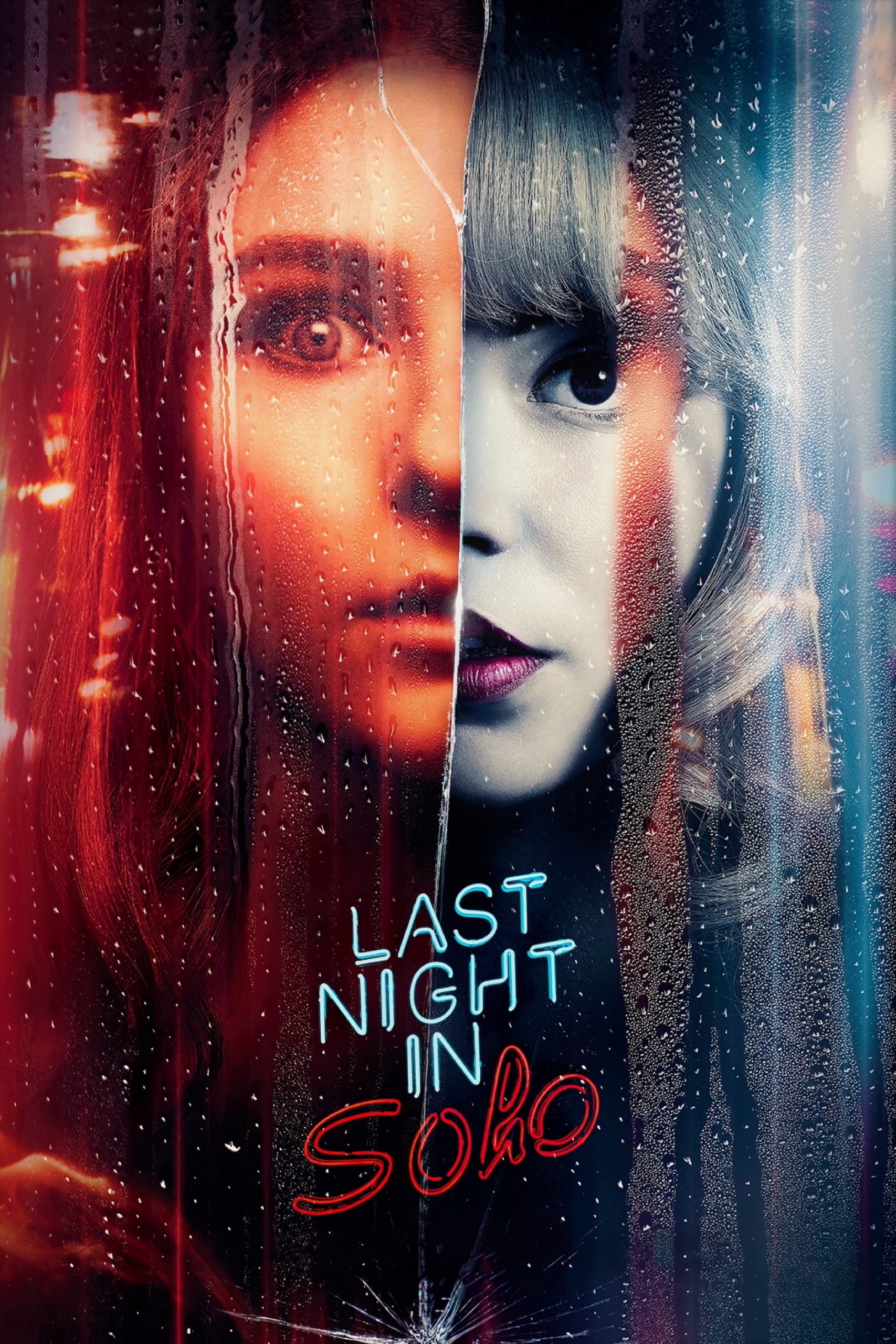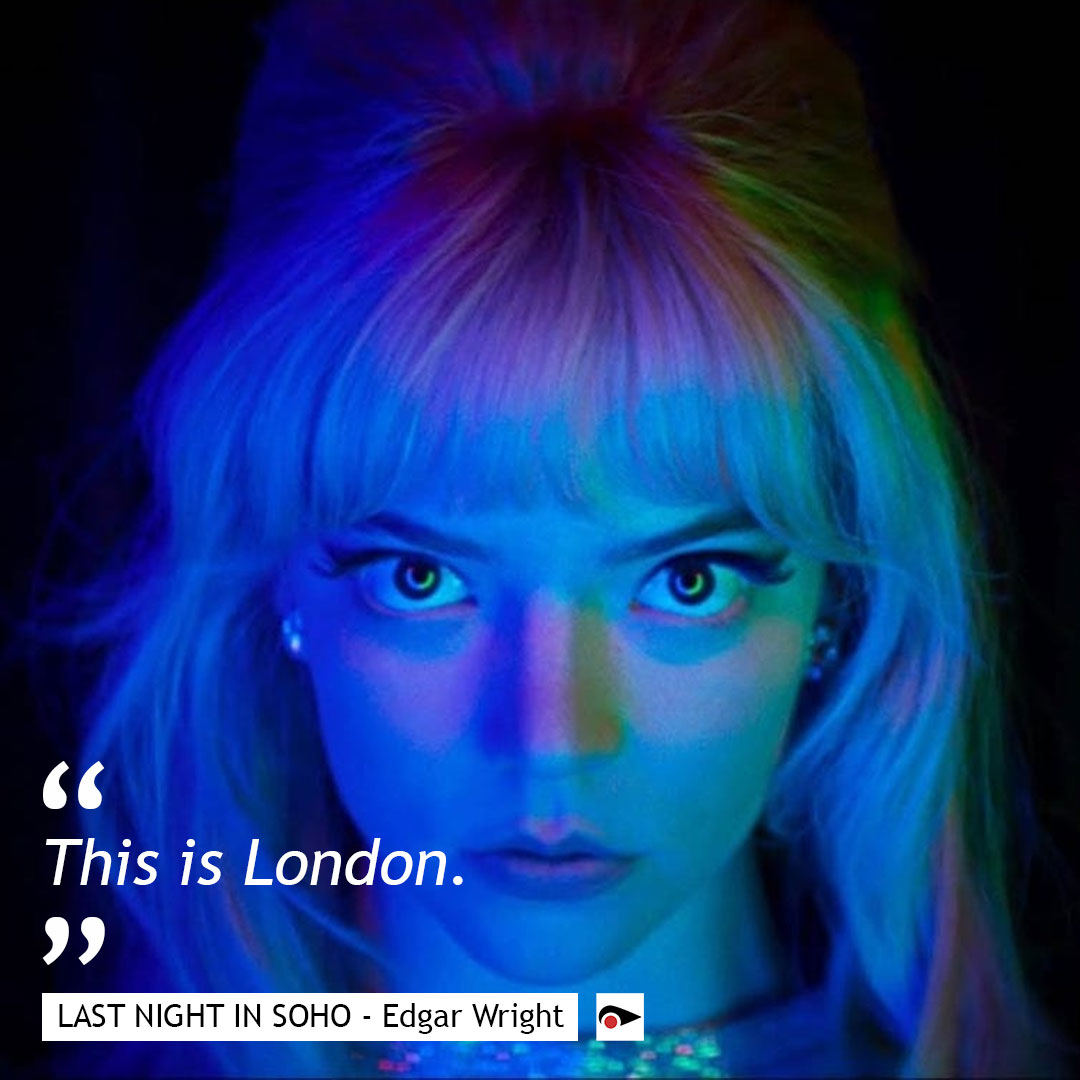
Edgar Wright – Last Night in Soho (2021)



- Cinematography through the use of the bistro colours is really interesting.
- The staging, as always for Wright, is chock full of excellent shots and very interesting traits of audiovisual language.
- It’s interesting the fact that Wright has gone from a film with almost macho themes (cars, racing, shootings) to another in which the macho character is definitely (and rightly so) reported as violent.

- Slightly simplistic script.
- Film that, within the author’s career, seems to be more willing to immerse himself in a genre that fascinated him rather than actually inspired.
- Unfortunately, the Italian version has to face a horrendous dubbing that loses puns and tints of humor.
Do we recommend watching it?
Yes.
Few words about the film.
Last Night in Soho (2021) is basically a film about the identity search of a young woman who, having lost her mother when she was only 7, has difficulty finding her place in the world.
And so far it would also be quite trivial if it were not for the fact that Eloise’s journey in search of her identity – Eloise, who among other things also has the power to see … er … things – literally corresponds to living a dream ( the desire to live a different era typical of almost all generations) which soon turns into a real nightmare (tinged with horror shades almost from B-Movie) from which neither the protagonist nor her doppelganger really seem to be able to re-emerge from.
But what makes the film more interesting and moves it from a not exactly original incipit is the fact that this sliding into the nightmare, perfectly immersed in a fully London atmosphere and which reflects much of the ambivalence of the city itself, is perfectly supported by the Wright’s staging and from the visual and sound choices of which he is now fully in control.
Although there are no sequences of pure excellence (from the point of view of cinematographic language) as for example occurs in the first two scenes of Baby Driver, some passages are really well constructed and coordinated very well: Edgar Wright is a mature director and in total control of linguistic means and knows how to shape his stories even at a deeper level both from an aesthetic point of view – with cinematic references ranging from the giallo genre, to the 50s film noir and to the very famous clips of Clouzot’s L’enfer with Romy Schneider – and also from a purely narrative point of view.
In fact, Eloise’s identification with a different figure (Sandy) who basically reflects her age and condition (being disoriented upon arrival in a new city like London) takes place through a mirror, in one of the most literal cinematographic transpositions of the Lacanian concept of the “mirror stadium” (with the addition of a touch on the mirror that seems to indicate the gesture of the new generations of “tapping” on a smartphone screen, signaling a possible subtext regarding the unfiltered identifications of contemporary generations with not exactly educative models).
The film, however, has some limitations that are found mainly on the narrative level: although everything is in order from a structural point of view and the story lends itself to be followed with order (and with some predictable or not predictable twist, but this is another matter), many dynamics between the characters (besides Eloise – Sandy) are really simplistic and in some places even unbearably speckish: I am referring mainly to the whole world of the “college”.
In any case, Last Night in Soho, is a fun post-modern pastiche that manages to be very enjoyable even in its basically entertainment character. A film that can be watched both on the surface and in depth, as long as you don’t dig too much, otherwise the skeletons, or rather, the ghosts, come out.
“Should I watch it, then?”
Well, you now know what we think about it but if you are still unsure about it, take a look at the trailer to decide for yourself whether to watch it or not.
Now, nothing left to do here, you just have to go and watch it or if you already did and have something to say about this movie, feel free to leave a comment at the end of the page and say whatever you like about the film. On this site, we are always happy to host others’ opinions on cinema and why not, open a debate if you don’t agree with us on this.
Something else?
To read more of these film “pills”, please visit our dedicated section. Or, if you’re after a more-in-depth look at some films and/or filmmaking techniques more than just a few words, please have a look at our Film Analysis page.